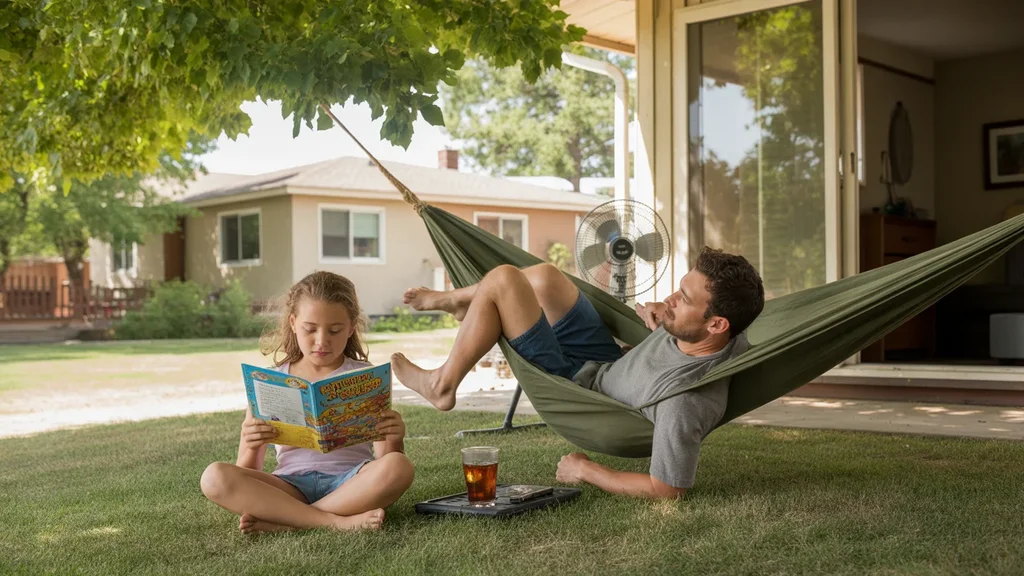When the Johnsons opened their July electric bill, they were shocked. “How is it even possible to pay $285 just to keep the house livable in this heat?” Stacey wondered aloud. As newer residents of Boulder, Colorado, they weren’t prepared for the sticker shock of summer energy bills in their adopted hometown.
If you’re also wondering how high your electricity costs might climb in Boulder this summer, you’re not alone. Air conditioning is a virtual necessity in this sunny, high-desert climate — but it comes at a steep price. Here’s what you need to know to anticipate and manage your summer utility expenses.
What Summer Power Costs Look Like in Boulder
While every household’s energy use is different, summer energy bills in Boulder typically fall between $150 and $350 per month for an average single-family home. The exact amount depends on factors like your cooling system, home size and efficiency, thermostat settings, and daily habits.
According to local utility data, the average monthly electric bill in Boulder is around $110 in June, $285 in July, and $260 in August for a typical 1,800 square foot house. The average July electric bill in Boulder is about $285, representing the peak of air conditioning season.
These figures assume standard residential electricity rates and average cooling use. If you have an especially large home, an older A/C unit, or keep your house extra-chilly, your bills may be higher. Time-of-use pricing and solar panels can bring costs down.
Why Are Energy Bills So High in Boulder During the Summer?

There are several reasons why Boulder residents see their energy costs soar in the summer months. The main culprit is air conditioning. Cooling accounts for more than half of a typical home’s electricity use during the hottest months.
Boulder’s high-desert climate means intense sun and heat, especially in July and August. Daytime highs often top 90°F (32°C), driving residents to crank up the A/C. Older homes may have less efficient cooling systems and insulation, leading to even higher bills.
Other summer-specific energy needs can also add up, like pool pumps, landscape irrigation systems, extra refrigerator or freezer use, and electric vehicle charging for summer road trips. Longer daylight hours mean more time spent at home using electronics and appliances.
Sample Monthly Bill Breakdown
What exactly makes up those high summer electric bills? Here’s a look at how cooling stacks up against other household energy needs in Boulder:
| Usage Category | Percent of Bill |
|---|---|
| Cooling | 55% |
| Appliances & Electronics | 20% |
| Water Heating | 12% |
| Lighting | 8% |
| Other | 5% |
Based on 1,800 sq ft home with average A/C use in Boulder, CO
Expect cooling to account for 50–60% of your July energy bill in Boulder. The rest is split between everyday needs like running appliances, heating water, lighting, and charging devices. Your specific breakdown may vary based on your home and habits.
Ways to Lower Summer Energy Bills
While some summer bill increase is inevitable, Boulder residents can take steps to control costs:
- Sign up for off-peak billing, if available, to get discounts for using less energy during peak hours (typically weekday afternoons).
- Install a smart thermostat to automatically optimize your A/C settings.
- Have your ducts professionally sealed to improve cooling efficiency.
- Use shade strategically, with window coverings, awnings, trees or vines.
🏆 Energy Tip: Set your thermostat to 78°F (26°C) when you’re home and a few degrees higher when away. Use ceiling fans to feel cooler with less A/C.
Time-of-Use Pricing in Boulder
Some utility providers, like Xcel Energy in Boulder, offer optional Time-of-Use (TOU) pricing. Under these plans, you pay different rates for electricity depending on when you use it.
Typically, energy used during “peak” hours (e.g., 2pm to 6pm on summer weekdays) costs more per kilowatt-hour than off-peak and weekend use. The goal is to encourage customers to shift flexible energy needs, like running the dishwasher or charging an EV, to cheaper off-peak times.
TOU plans can help lower bills for households with the flexibility to adjust their energy routines. But they require extra awareness and may not be right for everyone. Compare your pricing options carefully.
Summer Cooling FAQs
Q: How much more are summer electric bills compared to spring in Boulder?
A: Electricity costs can easily double from spring to summer. The average bill might go from $110 in May to $285 in July — a 160% increase.
Q: Does solar power reduce summer energy costs?
A: Yes, a well-designed solar system can significantly offset summer bills. With Boulder’s abundant sunshine, solar panels hit peak production just when you need it most. Many homes still rely on the grid for evening and backup power.
Q: What temperature should I keep my house at in the summer to save energy?
A: The US Dept. of Energy recommends setting your thermostat to 78°F (26°C) when you’re home and awake, and a few degrees higher when you’re sleeping or away. Aim for the warmest temperature you can comfortably tolerate.
Smart Cooling Prep for Boulder Summers
While summer cooling costs are a fact of life in Boulder, a little knowledge goes a long way. Expect your electric bills to run between $150 and $350 per month in June, July and August, with cooling responsible for more than half those costs.
You can exert some control by seeking off-peak discounts, using a smart thermostat, maintaining your cooling system, and adopting energy-savvy habits. With a combination of smart home prep and sensible everyday choices, you can keep your summer bills in check while still enjoying a comfortable, air-conditioned living space.
For a more in-depth look at where your utility money goes, check out our guide to Boulder Utility Costs Explained.
